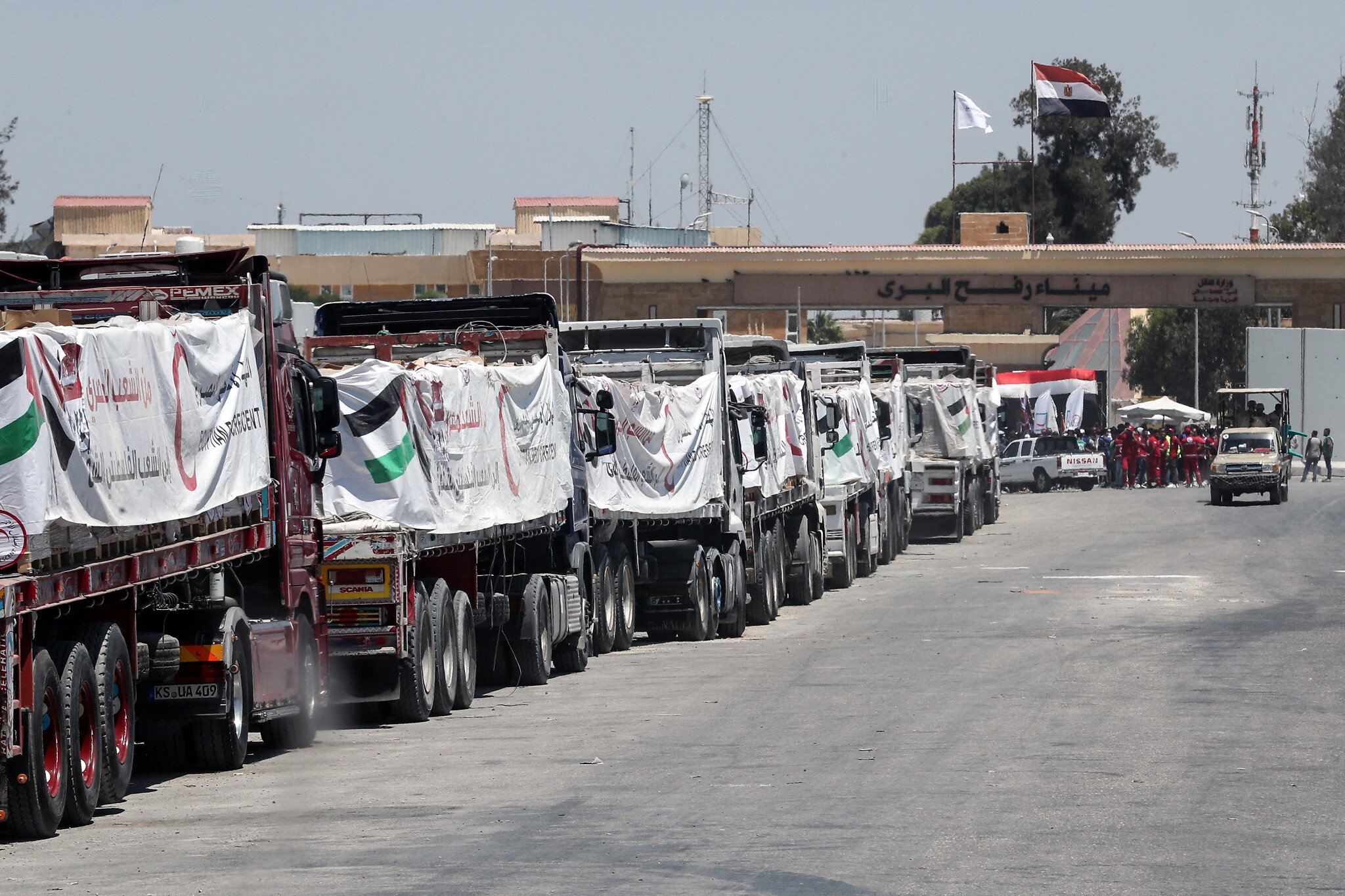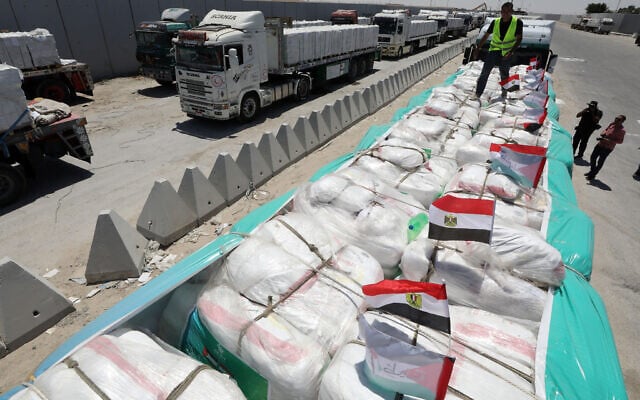



Hamas is using secretive methods to pay salaries to its tens of thousands of members, the BBC reported Wednesday, in a report that also supported Israel’s contention that the terror group has systematically commandeered humanitarian aid entering the Strip and is handing it out to loyalists while other Gazans go hungry.
The British broadcaster said it spoke to three Hamas employees who each reported they received some NIS 1,000 ($300) within the last week. At the same time, the report noted that those on the payroll are getting a fraction of their prewar salaries— at most 20% of the previous sum every 10 weeks.
According to the report, throughout the war, Hamas has continued paying wages to some 30,000 people described as “civil servants.”
A senior Hamas official was quoted as saying the terror group stockpiled some $700 million in cash in underground tunnels before launching its October 7, 2023, onslaught in southern Israel.
Noting that Israel has targeted Hamas salary distributors in order to disrupt payments, the report said operatives receive encrypted messages on their phones, inviting them for “tea” at a certain time and place. At the meeting, a contact walks by and discreetly hands them an envelope with cash before walking away.
The method entails dangers, the report said, with Israel sometimes identifying distribution points and hitting them with strikes. One source said he narrowly survived one such bombing.
The BBC also reported that Hamas has been taxing traders and selling cigarette packs for up to 100 times their prewar price to generate revenue.
It cited unnamed Gazan sources as confirming Israel’s longtime claim that significant portions of the humanitarian aid entering Gaza were diverted by the terror group and sold on the black market for inflated prices or handed to loyalists.
Both the terror group and the UN have in the past denied that systematic looting is taking place.
However, the UN recently admitted that 88 percent of the aid trucks it has collected over the past few months to deliver supplies to Gaza did not reach their destination due to looting.
According to the BBC report, “significant quantities” of aid were grabbed by Hamas during a two-month between January and March, during which Israel boosted aid deliveries as part of a deal that saw dozens of hostages returned.
In April, the Wall Street Journal also reported on the importance of humanitarian aid supplies to Hamas in its efforts to raise cash to pay fighters.
The BBC report said the diversion of supplies has fueled anger at Hamas among residents.
“When the hunger worsened, my children were crying not only from pain but also from watching our Hamas-affiliated neighbors receive food parcels and sacks of flour,” Nisreen Khaled, a single mother in Gaza, was quoted as saying. “Are they not the reason for our suffering? Why didn’t they secure food, water, and medicine before launching their October 7 adventure?”
Hamas employees were also said to be angry at the leadership over the inadequacy of wages amid rampant wartime inflation. In addition, one person told the BBC that most of the cash he did receive was useless, as the bills were old and worn out.


